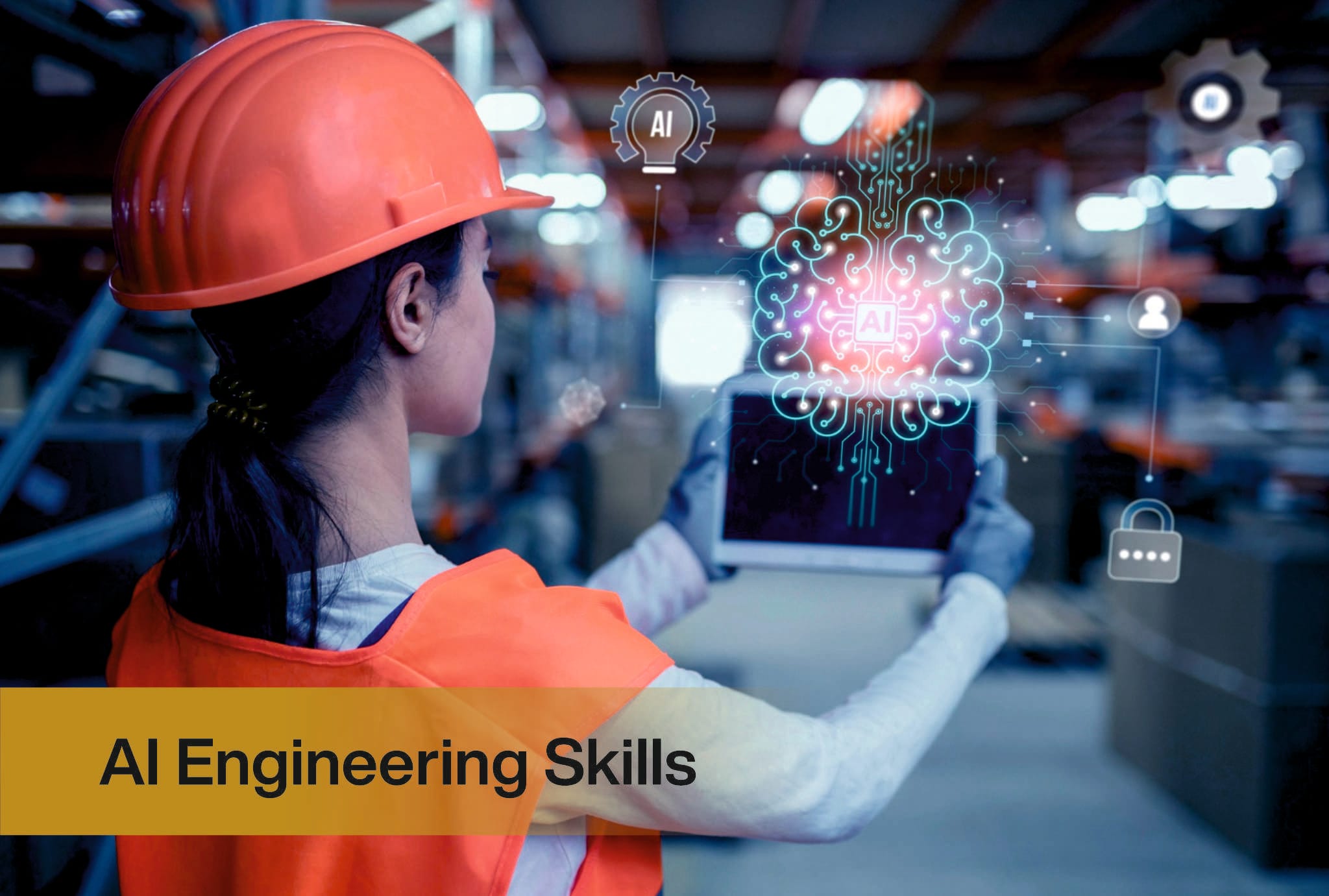Artificial Intelligence (AI) is reshaping industries, redefining innovation, and creating countless opportunities for skilled professionals. An AI engineering course equips students with a powerful combination of coding, machine learning, and cloud computing expertise, preparing them for impactful careers in one of the world’s fastest-growing domains.
Overview of an AI Engineering Course
An AI engineering course provides students with foundational and advanced technical training to design, develop, and deploy intelligent systems. The AI course curriculum includes programming, data science, machine learning skills, and cloud computing in AI, ensuring learners are equipped for both development and implementation of AI-based technologies across diverse sectors.
Importance of AI in Modern Careers
As industries transition towards automation, AI professionals are in high demand. AI career skills such as data analysis, algorithm design, and system optimisation empower students to create real-world AI applications. From healthcare and finance to logistics and marketing, the career benefits of AI engineering training are immense and future-focused.
Core Programming and Coding Skills
At the core of AI development lies programming. Students acquire essential coding skills for AI, mastering languages like Python, R, and Java. The programming and AI modules build problem-solving abilities and logic formulation, key skills for developing intelligent algorithms and data-driven applications.
Data Structures and Algorithms for AI
Understanding data structures is fundamental to optimising AI performance. Through this segment, students learn how algorithms drive automation and predictive models. The skills in the AI course ensure students gain analytical thinking, computational efficiency, and accuracy in building scalable AI systems capable of handling complex datasets.
Practical Coding Projects
Learning is reinforced through hands-on application. Students engage in AI course career opportunities for students by developing live projects ranging from chatbot design to data prediction models. These practical experiences nurture creativity and adaptability while deepening programming and cloud skills in the AI course curriculum.
Machine Learning and Data Science Skills
Machine learning forms the backbone of AI. Students master machine learning skills, including supervised and unsupervised learning, deep learning, and reinforcement learning. Combined with data science and AI skills, learners gain the ability to interpret data patterns and automate intelligent decision-making across various applications.
Supervised and Unsupervised Learning
This section delves into predictive and clustering algorithms. Students explore neural networks, regression models, and pattern recognition. These skills you’ll learn in an AI engineering course empower future engineers to design systems that continuously learn and evolve, driving accuracy and innovation.
Hands-On Data Science Projects
The course integrates real-world AI tools and technologies to analyse large datasets. Students use TensorFlow, PyTorch, and Scikit-learn to build models, fostering a practical understanding of data science and AI skills essential for research, analytics, and intelligent automation.
Cloud Computing and AI Integration
Modern AI relies heavily on cloud ecosystems. This section explores AI and cloud computing, enabling students to store, process, and deploy models efficiently. Learning cloud computing in AI builds scalability and flexibility, ensuring graduates can manage large-scale, distributed AI operations effectively.
Popular Cloud Platforms for AI
Students gain hands-on experience with leading platforms like AWS, Microsoft Azure, and Google Cloud. Understanding these systems provides valuable AI career skills, ensuring students can collaborate across industries that demand high-performance, cloud-based AI solutions.
Cloud-Based AI Projects
Practical cloud-based AI projects allow students to integrate real-time data, use APIs, and optimise model performance. These exercises within the form coding to cloud AI engineering course skills framework enhance problem-solving and demonstrate how AI engineering courses prepare students for future careers in applied technologies.
AI Tools and Technologies
Students learn to work with diverse AI tools and technologies like TensorFlow, Keras, OpenAI, and IBM Watson. Exposure to these platforms develops critical skills in the AI course, giving students a strong technical foundation for model creation, testing, and deployment.
Career Benefits of AI Engineering Courses
Graduates gain a strong edge in the job market. The career benefits of AI engineering training include lucrative roles in data science, automation, robotics, and analytics. Students equipped with AI course career opportunities for students often find themselves leading technological transformations in their industries.
Choosing the Right AI Engineering Course
Selecting a credible AI engineering course is crucial. Students should consider institutions with advanced labs, industry-linked internships, and an updated AI course curriculum. Sigma University offers comprehensive programs that emphasise both technical and practical learning for long-term career growth in AI.
To Sum Up: Master Coding, ML, and Cloud with AI Engineering
The future of technology belongs to those who can blend logic with innovation. Through an AI engineering course, students gain mastery over coding, machine learning skills, and cloud computing in AI. With such versatile expertise, they are prepared to thrive in tomorrow’s intelligent, interconnected world.
Frequently Asked Questions (FAQs)
What skills are learned in an AI Engineering course?
Students gain programming, data science, machine learning, and cloud computing in AI skills covering both technical and analytical competencies needed to design and implement intelligent, automated systems across industries.
Which programming languages are essential for AI courses?
AI courses emphasise Python, R, and Java as key languages. These enable efficient algorithm design, automation, and data analysis, core elements of coding skills for AI and practical model development.
What machine learning skills are taught in AI courses?
Students acquire machine learning skills, including supervised, unsupervised, and deep learning, alongside data analysis and predictive modelling essential for building AI systems that learn and evolve autonomously.
Which AI tools and technologies will students master?
Courses cover AI tools and technologies like TensorFlow, Keras, PyTorch, and OpenAI platforms, equipping students with real-world experience in developing and deploying intelligent AI applications.
Can AI engineering courses lead to high-paying job opportunities?
Yes, graduates gain AI career skills that open doors to lucrative positions in automation, data science, and robotics, offering excellent career growth and financial prospects.
Are hands-on projects part of AI engineering training?
Definitely. Practical learning is integral to AI engineering courses, involving live coding projects, cloud integrations, and model testing, enhancing confidence and job readiness for students.
How is cloud computing integrated into AI engineering programs?
Cloud computing in AI is taught through real-time projects on AWS, Azure, and Google Cloud, helping students deploy, manage, and scale AI applications efficiently and securely.

